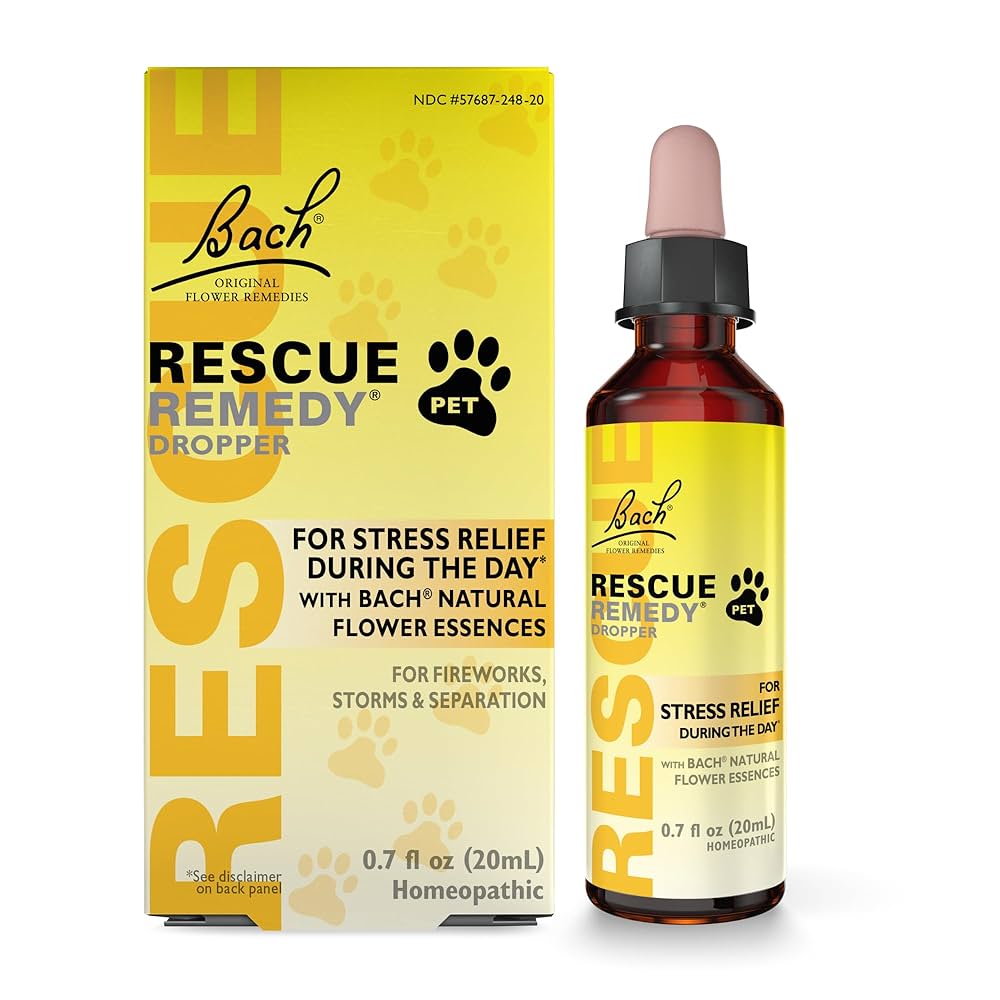Imagine your furry friend finally relaxing without the stress or anxiety that often keeps them on edge. You know how much it pains you to see your beloved pet struggling with nervousness or fear.
Whether it’s thunderstorms, fireworks, or a simple trip to the vet, these moments can turn a peaceful day into a stressful one for both you and your pet. What if there were natural ways to help soothe their anxiety and bring back the calm you both crave?
We’ll explore some effective natural calming remedies that can make a world of difference for your pet. Discover how you can transform their stress into serenity and enhance their well-being, all while using gentle, holistic solutions. Ready to uncover the secrets to a happier, more peaceful pet? Keep reading to find out how.
Also Read
Understanding Pet Stress
Pets can feel stress just like humans. Natural calming remedies, like lavender oil and soft music, can help. These remedies offer a gentle way to soothe anxious pets.
Understanding pet stress is essential for every pet owner. Just like humans, pets experience stress, and it can impact their health and behavior. Recognizing the signs of stress in your furry friends is the first step towards helping them.What Causes Stress In Pets?
Pets can become stressed due to various reasons. Loud noises, such as thunderstorms or fireworks, can be particularly unsettling. Changes in their environment, like moving homes or rearranging furniture, might also trigger anxiety. Even a new pet or family member can be stressful for your furry friend.Signs Your Pet Might Be Stressed
Is your pet acting differently? Stress can manifest in many ways. Look for changes in appetite or sleep patterns. Does your pet suddenly avoid you or seem more clingy? Unusual behavior like excessive grooming, panting, or whining are red flags. Watch closely, as these signs could be your pet crying for help.Why Understanding Stress Matters
Understanding stress in pets isn’t just about comfort; it’s about health. Stress can lead to serious health issues if not addressed. It can weaken their immune system, making them susceptible to illnesses. When you identify and tackle stress early, you pave the way for a happier and healthier pet.How Can You Help?
Consider natural calming remedies. These can be an effective way to soothe your pet. But before diving into solutions, ask yourself—have you taken time to understand your pet’s unique needs? Each pet is different, and what works for one might not work for another. Have you tried creating a safe space or using soothing music? Simple changes can make a big difference. In my experience, my cat used to get anxious whenever I left for work. I realized her stress was due to separation anxiety. By leaving a piece of my clothing with her, she felt comforted by my scent. This small step made her feel more secure. Does your pet have a safe haven? A quiet corner with their favorite toys can provide a sense of security. Have you attempted this yet? Understanding pet stress is a journey. Are you ready to make a difference in your pet’s life today?
Credit: www.amazon.com
Signs Of Stress In Pets
Pets, like humans, experience stress. Recognizing stress in your furry friends is crucial. Stress affects their health and behavior. Identifying signs early can help you provide comfort. Understanding these signals is the first step to easing their anxiety.
Behavioral Indicators
Behavioral changes often signal stress in pets. A common indicator is excessive barking or meowing. Some pets may become withdrawn. They might hide in unusual places. Others show aggression, even if normally friendly. Destructive behavior is another clue. Scratching furniture or chewing items can be stress-related. Watch for changes in eating habits. Loss of appetite or overeating may occur. Pay attention to grooming patterns. Over-grooming or neglecting grooming can indicate stress.
Physical Symptoms
Physical symptoms can also reveal stress in pets. Digestive issues are common. Your pet might experience diarrhea or vomiting. Changes in sleep patterns are noticeable signs. Some pets sleep more, others struggle to rest. Watch for trembling or shaking. It can mean your pet feels anxious. Excessive panting, not due to heat, may indicate stress. Loss of fur or skin conditions can also be stress-related. Keep an eye on your pet’s overall condition. Regular health checks can help detect these signs early.
Benefits Of Natural Remedies
Natural calming remedies can soothe pets during stressful times. Herbs and essential oils help reduce anxiety naturally. These remedies offer a gentle approach to pet care.
Caring for your pet’s well-being is a priority, and understanding the benefits of natural remedies can offer a holistic approach to their care. Natural remedies provide a gentle and effective way to calm your pet without the harsh side effects often associated with pharmaceutical solutions. Let’s delve into how these remedies can enhance your pet’s life.Improved Health And Well-being
Natural remedies often contribute to overall health improvement. For example, chamomile tea can soothe a dog’s upset stomach while calming anxiety. These remedies are usually packed with nutrients that support your pet’s immune system. Imagine your dog feeling more relaxed and healthier, thanks to a simple herbal solution.Reduced Stress And Anxiety
Pets experience stress too, especially during thunderstorms or fireworks. Natural remedies like lavender oil can help ease their anxiety. Have you noticed how your cat hides during loud noises? A few drops of lavender oil on their bedding might make a world of difference.Cost-effective Solutions
Natural remedies are often more affordable than prescribed medications. A bottle of CBD oil may cost less than repeated vet visits for anxiety issues. You can save money while giving your pet a comfortable life.Ease Of Use
Administering natural remedies can be straightforward. You don’t need complex instructions to add a calming herb to your pet’s diet. A sprinkle of valerian root in their food can be as simple as it sounds.Fewer Side Effects
Pharmaceutical solutions can sometimes lead to unwanted side effects. Natural remedies, on the other hand, offer a gentler approach. Have you ever given your pet medication only to deal with another issue? Natural solutions minimize that risk.Personal Connection
Using natural remedies can strengthen your bond with your pet. When you take the time to understand their needs and choose gentle solutions, you’re showing care and compassion. What could be better than seeing your pet relaxed and content because of your thoughtful choices? Incorporating natural remedies into your pet care routine can be a rewarding journey. How will you start integrating these calming solutions to benefit your furry friend today?Herbal Solutions
Pets can feel stressed or anxious just like humans. Herbal solutions offer a natural way to calm them. These remedies use plants with soothing properties. They are safe and easy to use. Let’s explore some popular herbal solutions for pets.
Chamomile
Chamomile is a gentle herb known for its calming effects. It helps reduce anxiety in pets. This herb can soothe upset stomachs too. Chamomile is easy to find in tea or capsule form. You can mix it into your pet’s food. It’s a simple way to help them relax.
Valerian Root
Valerian Root is another powerful calming herb. It can ease nervousness in pets. This herb works well for pets with separation anxiety. Valerian Root promotes better sleep. It comes in powder or tincture form. Always start with a small dose. Observe how your pet reacts.
Lavender
Lavender is famous for its soothing scent. It helps calm pets in stressful situations. Use it as an essential oil. Add a few drops to your pet’s bedding. Lavender can also be used in a diffuser. Ensure the room is well-ventilated. Lavender’s aroma provides a peaceful environment.
Aromatherapy For Pets
Many pet owners explore natural remedies to calm their furry friends. Aromatherapy is a popular choice. It uses essential oils to soothe pets. This gentle method supports relaxation and reduces anxiety. It’s important to know which oils are safe for pets. Understanding the correct application is crucial too.
Essential Oils
Lavender oil is well-known for calming effects. It helps reduce stress and anxiety. Chamomile oil also soothes nerves. It promotes a sense of peace in pets. Cedarwood oil is another option. It has a grounding effect, helping to calm hyperactive pets. Always choose therapeutic-grade oils for safety. Quality matters for your pet’s health.
Safe Application Methods
Diffusion is a safe way to use oils. A few drops in a diffuser work well. Ensure the room is well-ventilated. Avoid direct contact with your pet’s skin. You can also mix oils with water. Spray this mixture in your pet’s space. Never use oils near your pet’s face. Monitor your pet for any adverse reactions.

Credit: www.amazon.com
Dietary Supplements
When your pet is feeling anxious, it can be heartbreaking to watch. While some anxiety is normal, ongoing stress can affect their health. One way to help them is through dietary supplements. These natural remedies can promote a calm and happy pet. Let’s explore some supplements that might make a difference.
Omega-3 Fatty Acids
Omega-3 fatty acids are known for their calming properties. They support brain health and reduce inflammation. This can lead to a happier, more balanced pet.
Have you noticed your pet acting jittery during thunderstorms? Adding omega-3s to their diet might help. Fish oil supplements are a popular choice. They’re easy to mix into food and often come in pet-friendly flavors.
These fatty acids also improve coat health and shine. It’s a win-win for both you and your pet. Have you tried them yet?
Probiotics
Probiotics are friendly bacteria that support gut health. A healthy gut can positively impact your pet’s mood. If your pet has digestive issues, probiotics might offer relief.
I once tried probiotics for my anxious dog, Max. Within weeks, he seemed more relaxed, especially during car rides. It’s incredible how gut health can affect overall behavior.
Consider adding a probiotic supplement to your pet’s diet. Many options are available, including chewable tablets and powders. What do you think could be the impact on your pet’s stress levels?
Dietary supplements can be a simple and effective way to help your pet feel more at ease. Always consult your vet before starting any new supplement regimen. They can guide you on the best choices for your furry friend.
Behavioral Modification Techniques
Natural calming remedies offer gentle ways to soothe pets using behavioral modification techniques. Herbal supplements, soothing music, and massage can ease stress effectively, promoting a peaceful environment. These methods enhance pet well-being without harsh chemicals, fostering trust and comfort.
Understanding and addressing your pet’s anxiety or fear can feel overwhelming. However, behavioral modification techniques can provide effective solutions to help calm your furry friend. These methods focus on gradually changing your pet’s emotional response to specific triggers. By dedicating time and patience, you can help your pet feel more secure and relaxed.Desensitization
Desensitization involves slowly exposing your pet to the source of their fear or anxiety in a controlled way. Imagine your dog is afraid of thunderstorms. You could start by playing a low-volume recording of thunder. Over time, as your pet becomes more comfortable, you gradually increase the volume. This technique requires consistency. Always ensure that your pet remains calm and relaxed during each session. If your pet shows signs of distress, reduce the exposure. The goal is to create a neutral or positive association with the previously scary stimulus.Counter-conditioning
Counter-conditioning works by changing your pet’s negative reaction to a positive one. Think about your cat who hides when the vacuum cleaner starts. Each time you turn on the vacuum, offer a treat or play with a favorite toy. This process helps your pet associate the once-feared object or situation with something enjoyable. It’s essential to reward your pet immediately after the trigger appears. Timing is crucial. The more you practice, the more your pet will anticipate something good instead of feeling anxious. Are you willing to invest time in these techniques to see your pet thrive emotionally? It’s worth it when you see them wagging their tail or purring contentedly instead of hiding or trembling.
Credit: www.walmart.com
Environmental Enrichment
Environmental enrichment offers natural calming remedies for pets by creating stimulating environments. It helps reduce anxiety and boredom in animals. Simple activities like puzzle toys, scent trails, and interactive play can enhance their well-being.
Pets thrive in environments that stimulate their senses and keep their minds active. Environmental enrichment is crucial for their well-being. It provides the mental and physical engagement pets need to stay calm and happy. Imagine being stuck in the same room with nothing to do all day. Wouldn’t you get restless? The same applies to your furry friend. By enhancing their environment, you can help reduce anxiety and improve their overall mood.Interactive Toys
Interactive toys are a fantastic way to keep your pet entertained. These toys engage your pet’s natural instincts to hunt, chase, or solve problems. I once introduced a puzzle feeder to my cat, Whiskers. He spent hours trying to get the treats out, which significantly reduced his nighttime prowling. Think about what your pet loves to do. Is it chasing, chewing, or perhaps solving puzzles? There are toys designed for every preference. You can easily integrate these into your pet’s daily routine. Hide treats inside the toy for an added challenge. Notice how your pet becomes more focused and less anxious.Comfortable Spaces
Creating a comfortable space is essential for your pet’s relaxation. This space acts as a safe haven where they can retreat and feel secure. When my dog, Max, gets overwhelmed, he heads straight to his cozy corner with his favorite blanket. Consider designating a quiet area in your home for your pet. Use soft bedding, familiar scents, and low-lighting. This space should be free from loud noises and disturbances. Personalize it with items that your pet loves. Are there certain toys or blankets that make them feel at ease? Make sure those are within reach. You’ll notice a more content and calm pet when they have a dedicated retreat. How have you enriched your pet’s environment? Have you noticed any changes in their behavior? By enhancing their surroundings, you offer them not just comfort, but a happier, healthier life.Music And Sound Therapy
Music and sound therapy is a powerful yet often overlooked tool for calming your pets. Whether your furry friend is anxious during storms or needs help settling into a new environment, sound can be a gentle, non-invasive way to ease their stress. Many pet owners have found that the right tunes or sounds create a peaceful atmosphere that helps pets relax, sleep, and feel more at ease.
Calming Playlists
Have you ever noticed how certain songs can change your mood? The same is true for your pets. Calming playlists specifically designed for pets can be a game-changer. These playlists often feature soft melodies and gentle rhythms that can soothe your pet’s nerves.
Platforms like Spotify and YouTube offer pet-friendly playlists. Some are curated by animal behaviorists and musicians who understand the nuances of sound therapy. Try playing different playlists to see which ones resonate best with your pet. You might find that classical music or nature sounds are their favorite.
White Noise
White noise can be incredibly effective in blocking out disruptive sounds that may trigger anxiety. This constant sound helps mask other noises, like traffic or fireworks, that might stress your pet. It’s like giving them a protective audio blanket.
Consider using a white noise machine or an app on your phone. Set it up in your pet’s favorite relaxation spot, such as their bed or the living room. Some devices even have settings specifically for pets, ensuring the volume and frequency are just right.
Have you tried using sound therapy with your pets before? What was their reaction? Experimenting with different sounds can be an exciting journey for both you and your pet. By tuning into their preferences, you’re not just calming them; you’re building a deeper connection and trust.
Consulting A Veterinarian
Natural calming remedies for pets can greatly help with stress. Yet, consulting a veterinarian is crucial. A vet provides expert guidance tailored to each pet’s needs. Veterinarians can pinpoint the cause of stress, ensuring the remedy is effective. Professional advice can prevent health issues and promote wellbeing.
Identifying Severe Stress
Some pets show signs of severe stress. Signs include excessive barking, trembling, or hiding. These symptoms may indicate deeper issues. Stress can affect physical health too. A veterinarian can identify the level of stress in your pet. They can distinguish between mild anxiety and severe stress. This is key for choosing the right remedy.
Professional Advice
Veterinarians offer professional advice based on experience and training. They understand animal behavior and health better than anyone. A vet can suggest suitable calming remedies, from herbal solutions to behavioral therapy. Professional advice ensures safe and effective treatment. It prevents ineffective methods that might harm your pet.
Trusting a vet’s guidance leads to better outcomes. It helps your pet feel calm and secure. Consulting a veterinarian builds a path to a happier, healthier life for your furry friend.
Frequently Asked Questions
What Are Natural Calming Remedies For Pets?
Natural calming remedies include herbal supplements, essential oils, and calming treats. Herbs like chamomile and valerian root can soothe anxious pets. Essential oils such as lavender may help relax them. Calming treats often contain ingredients like L-theanine or CBD, promoting relaxation without sedation.
How Do Herbal Remedies Calm Pets?
Herbal remedies work by reducing anxiety and stress in pets. They contain natural compounds that interact with the pet’s nervous system. Chamomile and valerian root are popular choices. These herbs help reduce tension and promote relaxation, making them effective for calming anxious pets.
Are Essential Oils Safe For Pet Calming?
Essential oils can be safe when used correctly. Always dilute them before applying or diffusing around pets. Lavender is a commonly used oil for calming. Avoid oils toxic to pets, like tea tree. Consult a veterinarian to ensure the safe use of essential oils.
Can Cbd Treats Calm Anxious Pets?
CBD treats may help calm anxious pets by interacting with their endocannabinoid system. They can reduce stress and anxiety without causing sedation. Ensure the treats contain pet-safe CBD and follow dosing guidelines. Always consult a veterinarian before introducing CBD into your pet’s routine.
Conclusion
Calming remedies can help your pets feel relaxed and happy. These natural solutions are gentle and safe for animals. Using them can improve your pet’s mood and behavior. Try different options to find what works best. Always watch your pet’s reactions closely.
Consult your vet if unsure about a remedy. Every pet is unique, so patience is key. A calm pet is a happy pet. Explore these remedies to enhance their well-being. Your furry friends deserve peace and comfort. Make their world a soothing place.




